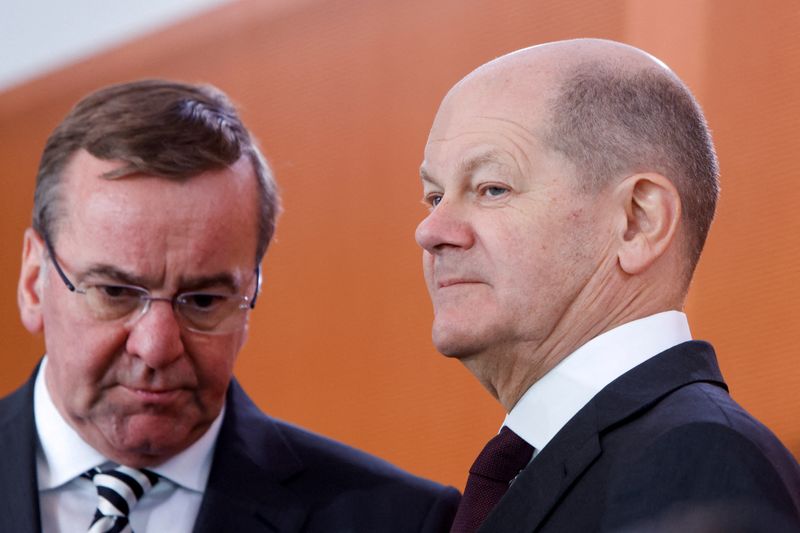
[ad_1]

© Reuters. FILE PHOTO: German Chancellor Olaf Scholz and Defence Minister Boris Pistorius attend the weekly Cupboard assembly on the Chancellery in Berlin, Germany March 22, 2023. REUTERS/Michele Tantussi/
BERLIN (Reuters) – Germany’s navy can not fully fill its present gaps by 2030, Defence Minister Boris Pistorius was quoted as saying, as Berlin seeks to revamp its armed forces after Russia’s invasion of Ukraine following many years of neglect.
“Everyone knows that the present gaps can’t be fully closed by 2030… It can take years. Everyone seems to be conscious of that,” Pistorius mentioned in an interview with Welt am Sonntag newspaper printed on Saturday.
Already worn down by many years of underinvestment for the reason that finish of the Chilly Warfare, the Bundeswehr is in even worse form than a 12 months in the past given weapons and munitions donated to Ukraine have principally not but been changed, say consultants.
Pistorius rejected additional arms deliveries to Ukraine from the Bundeswehr shares past the introduced commitments.
“To place it bluntly, like different nations, we’ve a restricted stock. As federal defence minister, I can not give all the things away,” he mentioned.
The minister, who was appointed earlier this 12 months, mentioned rising the defence price range to succeed in the NATO spending goal of two% of nationwide output, from at the moment round 1.5%, was his highest precedence.
“If that’s then set in movement on the finish of the (legislative) interval, then I’d be glad,” he added.
Germany can be planning a naval mission within the Indo-Pacific area subsequent 12 months and is intensifying its partnerships with key international locations within the area, comparable to Japan, Australia, India, Indonesia, South Korea and Singapore, he mentioned, saying Europe’s freedom of motion in seas there was “too challenged”.
[ad_2]